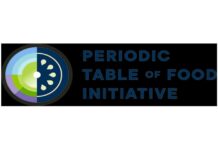The World Health Organization (WHO) Director-General announced that he will be seeking advice from independent experts to determine if the growing spread of the mpox virus in Africa should be classified as a global emergency. This decision comes in light of the recent surge in cases reported by the Africa Centers for Disease Control and Prevention, with a 160% increase in cases and a 19% rise in deaths compared to the same period last year.
In a press briefing held in Geneva, WHO Director-General Tedros Adhanom Ghebreyesus expressed his concerns regarding the escalating spread of mpox cases beyond Congo. As a result, he has decided to consult independent experts to provide guidance to WHO promptly.
The Africa CDC revealed that mpox, also known as monkeypox, has been identified in 10 African countries this year, with Congo reporting over 96% of all cases and deaths. Children under the age of 15 constitute nearly 70% of cases in Congo, with 85% of deaths also attributed to this age group.
Recent reports have indicated the emergence of a more lethal strain of the mpox virus in Congo, capable of causing fatalities in up to 10% of infected individuals. This development has raised concerns among health officials, prompting WHO to release $1 million from its emergency fund to support response efforts.
Countries such as Burundi and Rwanda have reported mpox cases for the first time, while Kenya and the Central African Republic have also confirmed outbreaks. Health officials in Africa are working tirelessly to contain the spread of the disease, which primarily spreads through close contact with infected individuals.
Mpox was previously declared a global emergency by WHO in 2022 when it affected over 70 countries, primarily impacting gay and bisexual men. While Western nations were able to control the spread of the virus through vaccines and treatments, limited access to these resources in Africa poses a significant challenge.
Maria Van Kerkhove, the head of WHO’s outbreak department, emphasized the urgent need for a more proactive response to the mpox epidemic in Africa. She urged global cooperation and swift action to prevent further escalation of the crisis, stating, “The time to act is now.”
The situation in Africa highlights the importance of international collaboration and support in addressing public health emergencies. As the world grapples with the threat of infectious diseases, timely intervention and effective response strategies are crucial to safeguarding global health security.


















